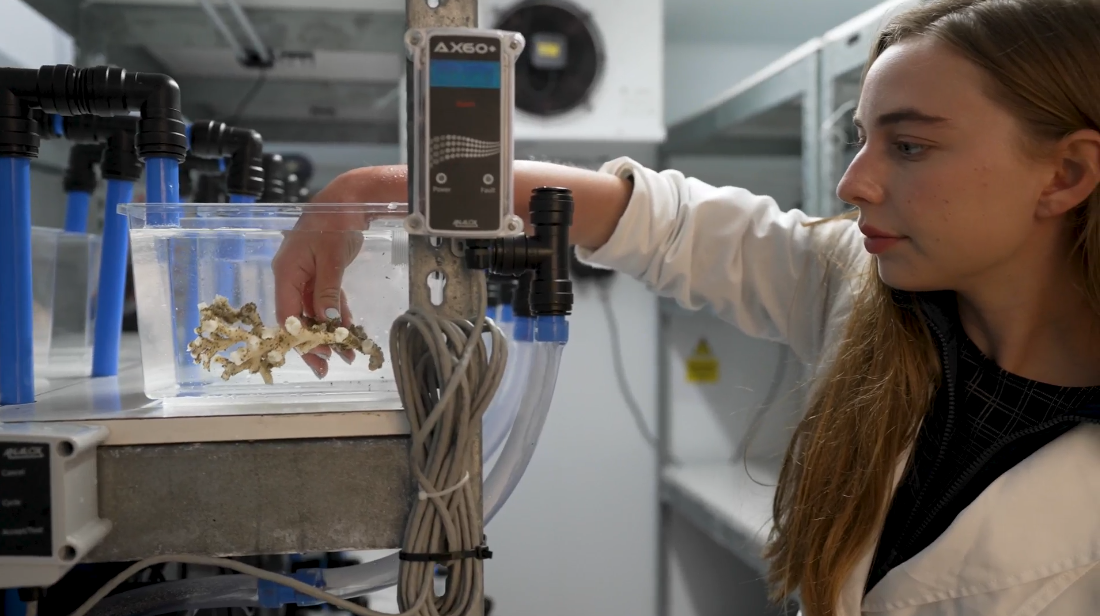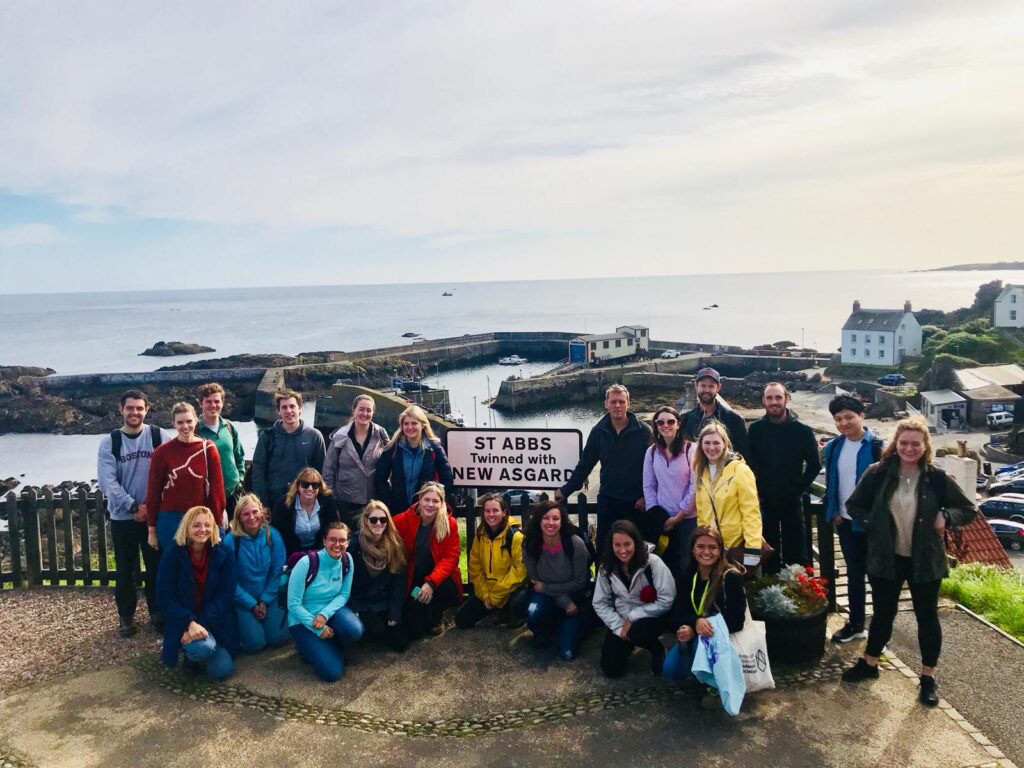Research and Community: St. Abbs Marine Station Partnership

In 2020, The University of Edinburgh began a five-year collaboration with St. Abbs Marine Station – enhancing the facility’s potential through research, conservation efforts, and educational activities. Students studying MSc Marine Systems and Policies benefit from this partnership, gaining invaluable access to the local marine environment and facilities.
“The oceans are changing at a rate which we’ve never experienced before. And that’s why we need an understanding of what future changes are going to be on the horizon for our ecosystems.
We also need to work with the communities affected by these shifts. So not only do we know what changes are going to happen, but how we can work on that together; and do everything we can to conserve the ways that we interact with the marine ecosystems and our way of life as well.
The University of Edinburgh has entered into a partnership with St Abbs Marine Station. The partnership allows our students access to work with the facilities, the laboratories, and their large-scale Mesocosm – a 10,000-litre tank. The unique location also allows students invaluable access to the local marine environment.
Through our partnership with St Abbs, we’ve set up various multi-stress and long-term experiments, utilising this world leading facility on electromagnetic fields and the impacts that has on marine organisms. This allows us to really understand how future stresses are going to impact upon organisms in their ecosystems, but also importantly, the engagement with communities as well.
And that’s something which is really strong at St Abbs, they’re well ingrained with the local community. And we’re using that to scale out our ideas into the wider policy frameworks as well.”
Why study Marine Systems and Policies?
Introduce yourself and your programme
“My name is Seb Hennige and I’m a senior lecturer in the School of GeoSciences. I’m also the Deputy Director of the Marine Systems and Policies programme. Within that programme, I’m the course organiser of the Marine Field Methods in Research and Practice, which is a field course, as well as Marine Ecosystems and Policies.
I’ve always loved the sea and growing up I always spent a lot of time by the shore. I come from a family who are fishermen as well. I’ve always loved the sea, and I always wanted to study something in the marine environment.
I did a degree where I studied a lot of corals, tropical corals and that just sparked my love.
I’ve kept working in the field since then. I’ve been delighted to then move a lot more of my research into the policy environment. And this is where I am today – deputy organising this programme on MSc Marine Systems and Policies.”
Give us more of a background about MSc Marine Systems and Policies
“The world that we’re living in and the oceans, they’re being impacted at an unprecedented rate.
We’re extracting things from them faster than we ever have done before. There’s environmental change, climate change, and these environments are incredibly vulnerable.
The MSc in Marine Systems and Policies is really about understanding how these environments are changing. We’re having a look at the science and we need to understand how we use in these environments – so sustainable use. We’re also looking at industry and need to understand the management and the policy framework that all of this sits within.
The MSc in Marine Systems and Policies programme is bringing all of these parts together. Students come onto this programme and leave understanding these different connections.
And that’s what’s unique about this programme – we’re bringing these different parts together, so our students understand the complex world that we live in and how to start to navigate it, as we best figure out how we can use and conserve our habitats in the future.”
Tell us more about the professional or academic backgrounds of your students

“I think teaching this programme is really interesting because we get to deal with such a diverse mix of students.
Our students come from all sorts of backgrounds, from policy environments, law, philosophy, natural sciences, and they all bring fresh perspectives. They all see things in slightly different ways. This is one of the philosophies of our programmes as well; we really like to integrate these different understandings and have lots of class-based discussion.
I’m learning a lot through their experiences as well.”
What types of roles do your students go on to do?
“Our students go on to have all sorts of jobs. Some of our students will work with governmental organisations or charities, conservation charities, or work more on the policy front. Many of our students have even stayed in Scotland. Others will go back to their international destinations where they came from. But we’re pleased to say that quite a few of the students have stayed in Scotland and we still get to interact with them.”
Useful links
Learn more about our MSc Marine Systems and Policies programme
Alumni testimonial: Gail Sant – MSc Marine Systems and Policies graduate
Website: St. Abbs Marine Station



